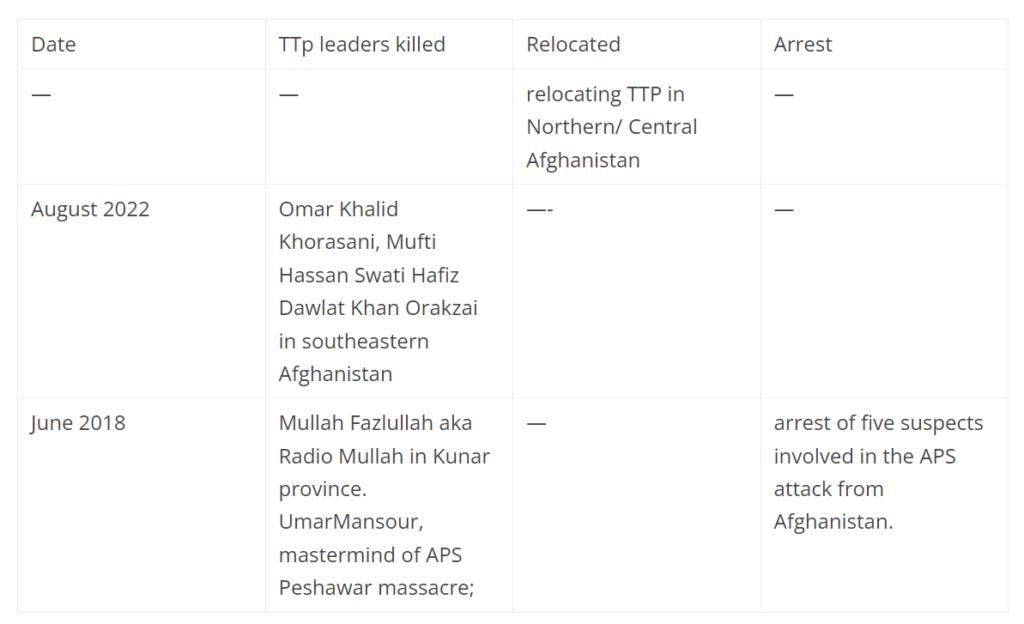Is Islamic Emirates Of Afghanistan (IEA) A State Sponsoring Terrorism? – OpEd
Since assuming control in August 2021 as a result of the departure of US-led forces from the war-torn nation, the Islamic Emirates of Afghanistan (IEA), often known as the Taliban, has been subject to worldwide condemnation and isolation. The IEA’s claimed ties to and sponsorship of numerous terrorist organizations operating in and out of Afghanistan are among the primary causes of the organization’s international mistrust and censure.
Although The IEA has always disputed the existence of any terrorist groups in Afghanistan and asserted that they don’t constitute a danger to the rest of the globe from its territory, Suhail Shaheen, a top Taliban leader, said in an exclusive interview with Arab News that there are no Tehreek-e-Taliban Pakistan (TTP) members in Afghanistan and that Pakistan is thus responsible for the TTP’s presence there rather than Afghanistan. These claims, however, have been regarded with suspicion and skepticism by several countries, particularly those that have been victims of terrorist acts planned or motivated by organizations based in Afghanistan.
For instance, India and Pakistan, have both expressed concerns at the UNGA about the existence and operations of terrorist organizations like Jaish Mohammad, Lashkar-i-Taiba, and Tehrik-i-Taliban Pakistan in Afghanistan. These organizations, which have carried out countless fatal assaults in both nations, apparently sought refuge and assistance under the IEA government.
According to reports, TTP members who infiltrated into Pakistan carried out the following assaults on Pakistani land (primarily in the KP area).

Likewise, the US and other NATO nations have charged the IEA with providing support to and working in concert with al-Qaeda, the international terrorist organization that was responsible for 9/11. Al-Qaeda has continued to be a serious concern to the US’s national security, and the US has cautioned the IEA that the agency would suffer serious repercussions if it permitted al-Qaeda or some other terrorist organization to use Afghanistan as their headquarters for strikes against the US or its interests.
In addition to being refuted by reliable sources and intelligence assessments, the IEA’s denial of the existence of terrorists in Afghanistan is also challenged by its own contradictory behavior and statements.
For instance, an Afghanistan-related UNSC Analytical Support and Sanctions Monitoring Team report S/2023/370 said that “the [Afghan] Taliban do not consider TTP to be a threat to Afghanistan, but rather as part of the emirate.” Similar to this, TTP commander Noor Wali Mehsud said in a video published in December 2021 that his organization was an extension of the Afghan Taliban in Pakistan.
In addition, the IEA has nominated a few people to significant positions in its executive body—those listed as terrorists by the UN or different countries, including Sirajuddin Haqqani, the head of the Haqqani network, an infamous Taliban group that is associated with al-Qaeda and responsible for multiple prominent assaults in Afghanistan.
Events/ incidents suggest the presence of terrorist groups, especially TTP, in Afghanistan:

Additionally, the IEA has exhibited partiality and forbearance toward a few of its associates that have engaged in terrorism or other acts of violence. Abdul Ghani Haqbeen, a former director of the IEA’s counterterrorism division for Kandahar, is a current example. He was detained in late 2022 on suspicion of illicit behavior, drug possession, and sexual assault of children. He spent half a year in jail before being freed in May 2023, supposedly because of his influence and connections with other tribes. Despite the IEA leader’s directive to refrain from such activities, hundreds of his followers cheered his release, showing firearms in the air.
Such crimes and circumstances show that the IEA is not committed to preventing terrorism and promoting peace and stability in Afghanistan and the surrounding area. instead employing terrorism as a tool to further its political and fanatic goals while pressurizing the neighboring states. This makes the IEA’s denial of a terrorist existence in Afghanistan unpersuasive or trustworthy, and it is unlikely to earn it any international credibility or respect.
TTP would have been dealt with if it had been an issue within Pakistan, but Pakistan recognizes Afghanistan’s sovereignty and territorial integrity, so suppressing TTP is difficult. Speaking out against Pakistan may win IEA leaders some favor in Indian and Western circles, but they must be careful not to squander the mutual respect and strengthening of relations among both nations. The developing goodwill between the two countries would be damaged if insignificant remarks were made.
The IEA needs to be held responsible for its actions and decisions rather than being duped or placated by its rhetoric or commitments by the international community. The IEA should be forced to sever every connection and provide assistance to terrorist organizations, uphold human rights and international law, and respect other Afghan stakeholders in order to create an unbiased and democratically elected government. Afterward, Afghanistan could have long-lasting peace and development.
